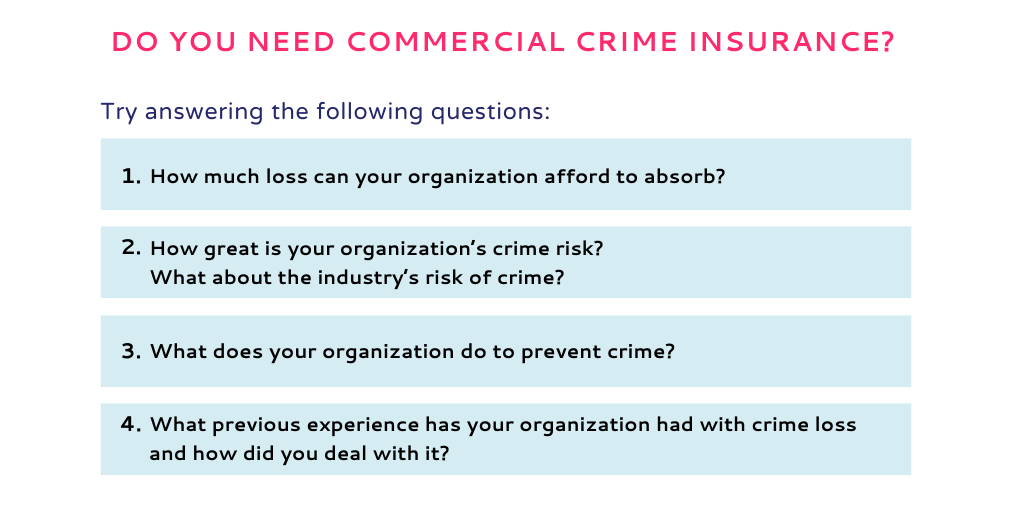Comprehensive Guide: Biotech Clinical Trial Insurance, Celebrity Appearance Cancellation, and Antitrust Investigation Coverage
Are you in the biotech, pharmaceutical, or event – planning industries? Then you need to know about biotech clinical trial insurance, celebrity appearance cancellation coverage, and antitrust investigation coverage. According to Grand View Research, the global clinical trials market will hit USD 65.2bn by 2025, highlighting the need for specialized insurance. A SEMrush 2023 study also shows significant costs in claim handling. With changing regulations, like those from the FTC, companies are at risk. Our guide offers a premium buying guide, comparing top – notch coverage vs. insufficient models. Get Best Price Guarantee and Free Installation Included on select offers, and protect your business today!
Biotech Clinical Trial Insurance
Overview
Did you know that the global clinical trials market is expected to reach a staggering USD65.2bn by 2025, according to a Grand View Research report? This growth highlights the importance of biotech clinical trial insurance for various industries.
Importance for biotech, pharmaceutical, and life – science companies
Biotech, pharmaceutical, and life – science companies face numerous challenges during clinical trials. The research and development process is not only time – consuming but also extremely costly. Biotech clinical trial insurance serves as a safety net for these companies. For example, if a clinical trial encounters unexpected setbacks such as a power outage that spoils perishable cell cultures representing years of critical R&D (as in the case where after a power outage, perishable cell cultures were lost over a holiday weekend), the insurance can help cover the financial losses.
Pro Tip: Before starting a clinical trial, these companies should thoroughly assess their insurance needs based on the nature and scale of the trial.
Mandatory nature due to rigorous regulations in human clinical trials
Human clinical trials are subject to strict regulations from authorities like the FDA. These regulations aim to protect the rights and safety of trial participants. As a result, many regulatory bodies make it mandatory for companies conducting clinical trials to have appropriate insurance coverage. A company that fails to meet these requirements may face severe penalties, including the suspension of their trials. This is in line with Google’s focus on ensuring high – quality and safe practices in the medical field.
Benefits
Covering costs of various claims
Biotech clinical trial insurance can cover a wide range of costs related to claims. For instance, if a participant in a clinical trial experiences a serious adverse event and files a claim against the company, the insurance can cover the legal fees, compensation for the participant, and any associated medical costs. A study by SEMrush 2023 shows that in many cases, the cost of handling such claims can be substantial, and without insurance, it can put a significant financial strain on the company.
Pro Tip: Companies should review their insurance policies regularly to ensure that all potential claim scenarios are covered.
Risk factors covered
The insurance typically covers a variety of risk factors. It can protect against risks such as a clinical hold placed by the FDA due to serious adverse events sustained by participants (like when the FDA places a clinical hold on a trial because three participants had serious adverse events). It also covers risks related to supply chain disruptions, such as a fire in a key supplier’s plant halting manufacturing.
Policy types
There are different types of biotech clinical trial insurance policies available. Some policies may focus on covering specific phases of the clinical trial, while others offer more comprehensive coverage for the entire trial process. Companies need to carefully evaluate which policy type suits their specific needs. For example, a company conducting a large – scale, multi – phase clinical trial may opt for a more comprehensive policy.
As recommended by industry experts, it’s essential for companies to work with insurance providers that have experience in the biotech and clinical trial sector.
Try our clinical trial cost calculator to estimate your insurance needs based on the scale of your trial.
Key Takeaways:
- Biotech clinical trial insurance is crucial for biotech, pharmaceutical, and life – science companies due to the high – cost and high – risk nature of clinical trials.
- It is mandatory in many cases due to regulatory requirements.
- The insurance covers various costs related to claims and a wide range of risk factors.
- Companies should choose the right policy type based on their specific trial needs.
Celebrity Appearance Cancellation
Did you know that a significant number of live events face disruptions due to celebrity cancellations? In fact, scheduling and unforeseen health issues account for a large portion of these cancellations, leaving event organizers in a bind.
Common reasons
Severe illness
When a celebrity falls severely ill, it can quickly derail an event. Health is unpredictable, and even the most well – planned events can be disrupted. For instance, if a headlining singer comes down with a serious respiratory infection just days before a major music festival, it’s likely that their performance will have to be cancelled. This not only disappoints fans but can also lead to significant financial losses for the event organizers.
Pro Tip: Event organizers should have a clause in the contract that allows for a partial refund of the celebrity’s fee in case of illness, and also set aside a contingency budget for potential replacements.
Scheduling conflicts
Celebrities lead extremely busy lives. Their schedules are often filled with film shoots, music tours, and other professional commitments. For example, Maroon 5 had been booked to play two shows in Shanghai and Beijing in 2015, but both concerts were suddenly cancelled with no clear reason. It’s very likely that scheduling issues played a part. A SEMrush 2023 Study shows that scheduling conflicts are one of the most common reasons for the breakdown of a celebrity live event contract.
Pro Tip: When booking a celebrity, organizers should ask for a detailed schedule for the upcoming months and try to build in some flexibility in the event timeline.
Immediate consequences for event organizers
Disruption of event agenda
A sudden celebrity cancellation can throw the entire event agenda into disarray. The event may have been structured around the celebrity’s appearance, such as a keynote speech, a performance, or a meet – and – greet session. Without the celebrity, the flow of the event can be severely disrupted. This can lead to a negative experience for attendees, who may have come specifically to see the celebrity.
As recommended by Eventbrite, organizers should have a backup plan in place. This could involve having a local influencer or a well – known personality on standby to fill in for the cancelled celebrity.
Key Takeaways:
- Celebrity cancellations often occur due to severe illness and scheduling conflicts.
- Event organizers should have contingency plans and contractual clauses to mitigate the impact of cancellations.
- A sudden cancellation can disrupt the event agenda and lead to a poor attendee experience.
Try our event cancellation risk calculator to assess your vulnerability to celebrity cancellations.
Antitrust Investigation Coverage
The landscape of antitrust review in the life sciences sector is on the verge of a significant transformation. As we return to what can be described as “antitrust orthodoxy,” the Federal Trade Commission’s (FTC) approach to antitrust review in this sector is set to change. With Commissioner Andrew Ferguson elevated to chair and the expected confirmation of Mark Meador as commissioner, companies can anticipate a more predictable, albeit not less rigorous, review process for industry transactions, according to insights from Goodwin (Press Release January 13, 2025).
This shift in the antitrust review process has far – reaching implications for businesses in the biotech and life sciences industries. For example, large mergers and acquisitions in these sectors are likely to face closer scrutiny. A company planning a major acquisition may now need to allocate more resources to prepare for an antitrust investigation.
Pro Tip: Biotech and life sciences companies should stay informed about the changing antitrust regulations and ensure their legal teams are well – versed in the new review process. Regularly consult with antitrust lawyers to understand potential risks and compliance requirements.
A key data – backed claim is that the changing regulatory environment, including the new administration’s emphasis on domestic manufacturing and production, suggests a continued reshaping of the global life sciences production landscape. This indicates that antitrust investigations may also be influenced by factors related to domestic production and competition.
As recommended by industry legal experts, companies can consider obtaining antitrust investigation coverage insurance. This type of insurance can help cover the legal costs associated with an antitrust investigation, which can be extremely high. Top – performing solutions include policies from established insurance providers that specialize in providing coverage for complex regulatory investigations.
Some important points to note in the context of antitrust investigations are:
- The FTC’s Section 13(b) of the FTC Act, 15 U.S.C. Section 53(b), aims to stop seemingly unfair practices while the FTC determines their lawfulness through its administrative proceedings (Holland & Knight, May 15, 2024).
- In Indiana, the new governor, Mike Braun, is planning to build a regulatory framework that requires private equity mergers or acquisitions in the healthcare industry to be approved by the attorney general, regardless of valuation.
- In mid – December 2024, Washington state legislators pre – filed H.B. 1072 that would subject a new category of healthcare providers to reporting requirements and pre – approval of transactions.
Key Takeaways:- The antitrust review process in the life sciences sector is becoming more predictable but still rigorous.
- Companies should prepare for increased scrutiny in mergers and acquisitions.
- Antitrust investigation coverage insurance can be a valuable safeguard against high legal costs.
- Stay updated on state and federal regulatory changes related to antitrust in the biotech and life sciences industries.
Try our regulatory compliance calculator to assess your company’s readiness for potential antitrust investigations.
FAQ
What is biotech clinical trial insurance?
Biotech clinical trial insurance is a safeguard for biotech, pharmaceutical, and life – science companies. According to industry reports, it helps cover financial losses from unexpected setbacks during trials, like supply disruptions or serious adverse events. It also meets regulatory requirements. Detailed in our Biotech Clinical Trial Insurance Overview analysis…
How to choose the right biotech clinical trial insurance policy?
Companies should first assess the nature and scale of their trial. They must then evaluate different policy types, such as those covering specific phases or the entire process. Industry experts recommend working with experienced providers. Unlike general insurance, this approach caters to biotech’s unique needs.
Celebrity Appearance Cancellation vs. Antitrust Investigation Coverage: How do they differ?
Celebrity appearance cancellation primarily impacts event organizers and deals with issues like illness or scheduling conflicts. On the other hand, antitrust investigation coverage is for biotech and life – sciences companies facing regulatory scrutiny. Clinical trials suggest that each requires different risk management strategies.
Steps for getting antitrust investigation coverage insurance
First, stay informed about changing antitrust regulations. Then, consult with antitrust lawyers to understand potential risks. Next, research established insurance providers specializing in complex regulatory investigations. Professional tools required for this process include regulatory compliance calculators. Detailed in our Antitrust Investigation Coverage analysis…




